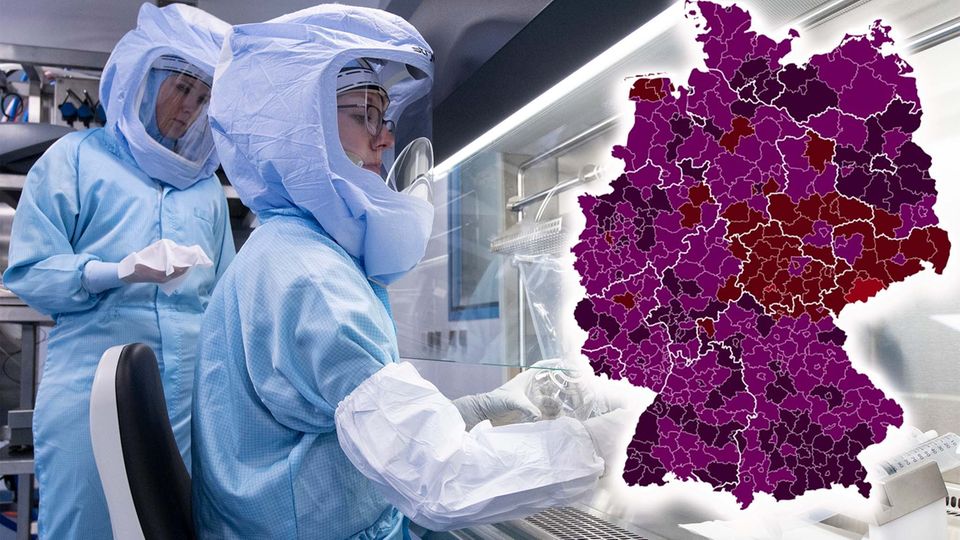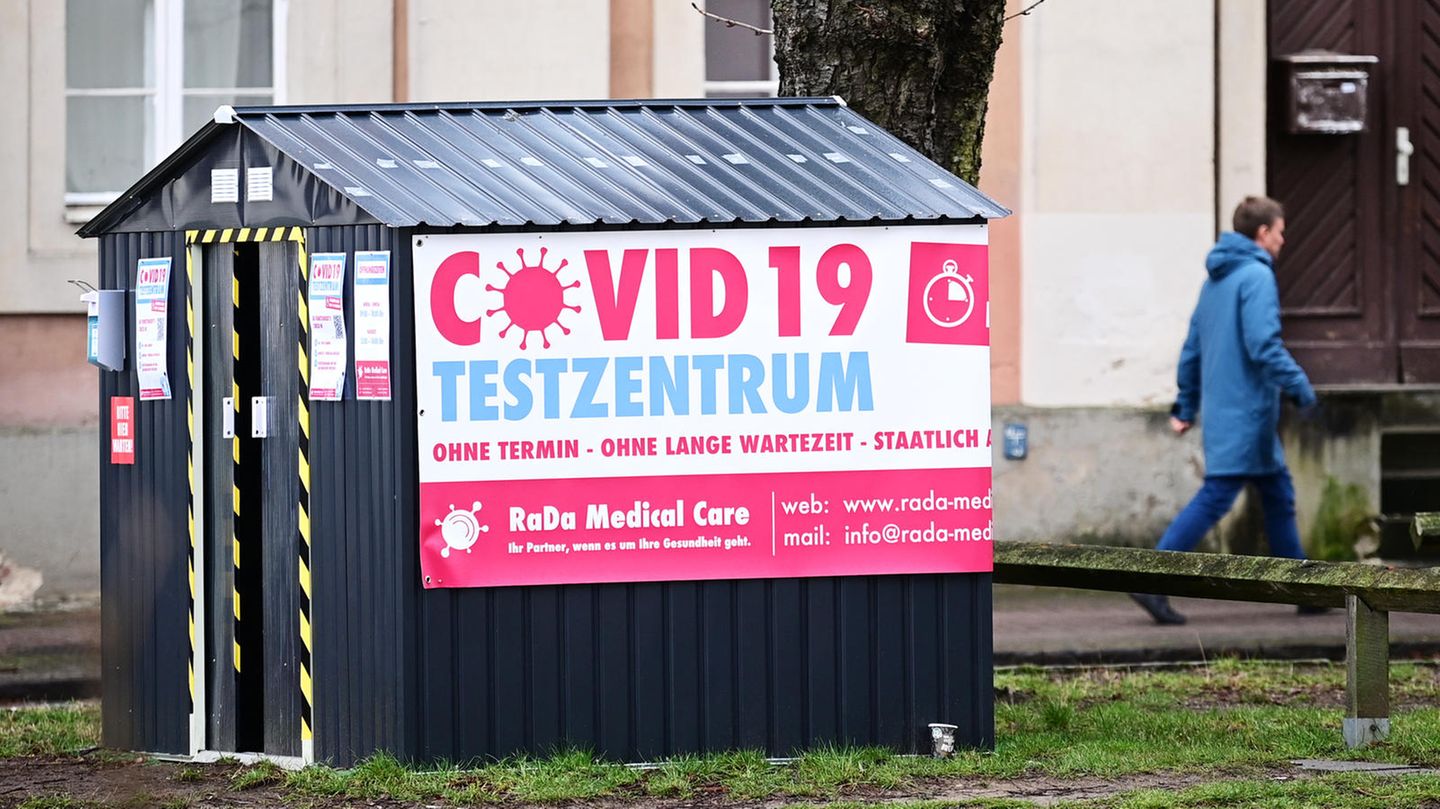For the first time, the RKI reports more than 200,000 new corona infections within 24 hours. The seven-day incidence also exceeded the thousand mark for the first time and was 1017.4 on Thursday morning.
The nationwide seven-day incidence reported by the Robert Koch Institute (RKI) exceeded the 1000 threshold for the first time exactly two years after the first confirmed corona case in Germany. The RKI gave the value of new infections per 100,000 inhabitants and week on Thursday morning as 1017.4. For comparison: the day before the value was 940.6. A week ago, the nationwide incidence was 638.8 (previous month: 222.7). The number of new corona infections also reached a record value and at the same time exceeded the threshold of 200,000: the health authorities in Germany reported 203,136 new corona infections to the RKI within one day. This emerges from figures that reflect the status of the RKI dashboard at 4:59 a.m.
Corona: Experts assume a high number of unreported cases
On January 19, the number was over 100,000 for the first time. A week ago there were 133,536 new infections recorded. Experts assume that there will be a high and increasing number of cases that are not recorded in the RKI data, partly because testing capacities and health authorities are at their limits in many places. According to the new information, 188 deaths were recorded across Germany within 24 hours. A week ago there were 234 deaths. The RKI has counted 9,238,931 infections with Sars-CoV-2 since the beginning of the pandemic. The actual total number is likely to be significantly higher, as many infections go undetected. The RKI gave the number of recovered people on Thursday morning as 7,443,300. The number of people who died from or involved a proven infection with Sars-CoV-2 rose to 117,314.
Hospitalization incidence is 4.26
In November, the federal and state governments had defined the so-called hospitalization incidence as the decisive benchmark for tightening the corona measures. This value indicates how many people per 100,000 inhabitants are in the hospital within seven days because of a corona infection. According to the latest RKI report on Wednesday, the hospitalization incidence nationwide was 4.26. After a few weeks of stagnation, the value has recently picked up again significantly. According to a report by “Bild” (Thursday edition), however, this value has recently lost its meaningfulness. According to this, more and more citizens are in hospitals who are officially registered as Covid patients due to a positive test, but are actually being treated medically for another illness. The newspaper referred to figures from Saarland, where in the past two weeks only every fourth officially reported corona patient was actually in the hospital because of Covid. In December it was therefore every second.

Bundestag discusses general vaccination requirements
The omicron variant of the coronavirus is considered to be significantly more contagious than previous variants. However, hospital data indicate that infections are often less severe than with the Delta variant. According to “Bild”, all cases are included in the 7-day incidence of the Robert Koch Institute, regardless of the actual reason for hospitalization. Against the background of the exploding number of infections, the members of the Bundestag discussed the pros and cons of compulsory vaccination for the first time on Wednesday. The deputy leader of the SPD parliamentary group, Dagmar Schmidt, said that compulsory vaccination was “not an easy step” for her, but the alternatives were more “many dead, sick and long-Covid patients” or more and more contact and access restrictions. Objection came from the ranks of the FDP, the left and the AfD, who described the vaccination requirement as disproportionate and warned that the discussion about it would divide society.
Source From: Stern




